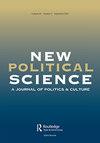Bearing Witness to Natality: The Politics of Birth at Auschwitz
IF 0.5
Q4 POLITICAL SCIENCE
引用次数: 0
Abstract
Abstract The accounts of Stanisława Leszczyńska and Gisella Perl, a midwife and gynecologist at Auschwitz respectively, reveal their acts of resistance to the Nazi regime. Using Hannah Arendt’s conception of natality—which finds in birth the origins of political action—to interpret Leszczyńska’s and Perl’s accounts, I find natality present at birth in a plurality of ways that demand recognition and respect. Where political institutions do not respect natality, the interpersonal act of bearing witness to natality can offer a profound political critique. Leszczyńska’s and Perl’s accounts show the intense pressure of external forces on the responsibility to affirm the natality of others, but I argue that bearing witness to natality is meaningful, regardless of whether or not it upends an oppressive political regime. Hope in dark times is best embodied in acts that bear witness to the natality of others, acts that are themselves a form of political natality, and not in the abstract and passive hope for a better world.《见证出生:奥斯维辛的出生政治》
摘要Stanisława Leszczyńska和Gisella Perl分别是奥斯威辛的助产士和妇科医生,他们的叙述揭示了他们抵抗纳粹政权的行为。利用汉娜·阿伦特的出生概念——在出生时就发现了政治行动的起源——来解释莱斯钦斯卡和佩尔的描述,我发现出生时的出生以多种方式存在,需要承认和尊重。在政治制度不尊重出生性的地方,见证出生性的人际行为可以提供深刻的政治批判。Leszczyńska和Perl的叙述表明,外部力量对确认他人出生的责任施加了巨大压力,但我认为,见证出生是有意义的,无论它是否颠覆了压迫性的政治政权。黑暗时代的希望最好体现在见证他人出生的行为中,这些行为本身就是政治出生的一种形式,而不是抽象而被动地希望一个更美好的世界。
本文章由计算机程序翻译,如有差异,请以英文原文为准。
求助全文
约1分钟内获得全文
求助全文

 求助内容:
求助内容: 应助结果提醒方式:
应助结果提醒方式:


